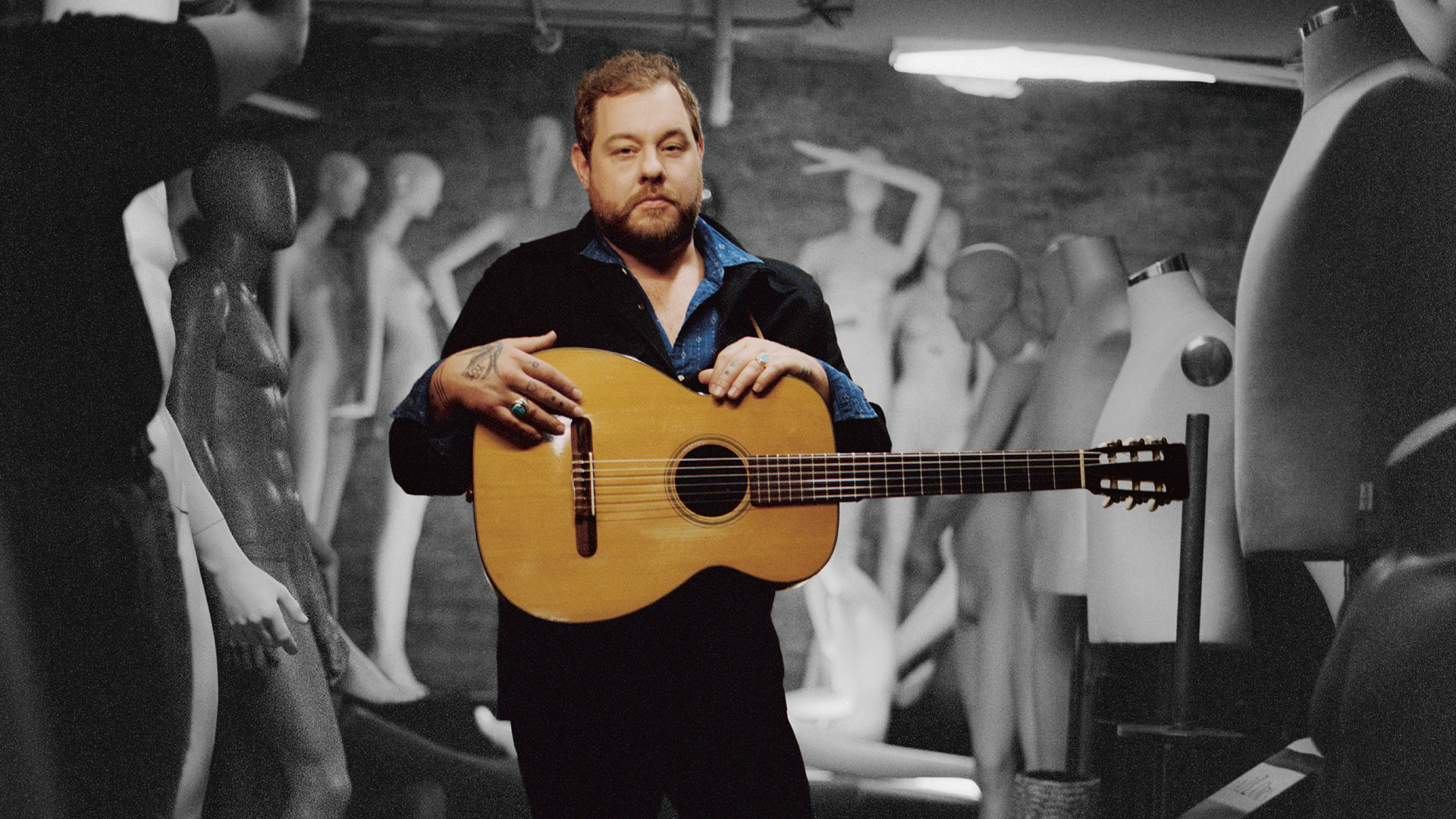Trading blaring horns for lush strings, and raucous rhythms for acoustic finger-picking and strumming, it’s a warm, tender record, steeped if not in Swift’s talents as a producer, then at least in his memory. For Rateliff, it’s an important opportunity to reflect on loss and grief, and in turn challenge us all to think a little bit deeper about how we contend with such emotions. “I feel it’s important that we start to be able to be vulnerable to those sort of feelings,” Rateliff says. “We don’t allow ourselves to talk enough about the process of grief – how we look past it and still try to find hope and joy in our lives.”
For Rateliff, finding new hope and joy began with looking after himself a bit better. “I don’t want to be a person who totally gives up drinking for ever,” he says, “but there were times when I was drinking from when I woke up until I fell asleep, and I don’t want that to be my life anymore. It’s not sustainable. So I’m trying to be a different person, a healthier person, to find some personal love for myself, I guess.”
If Rateliff sounds unusually wise for a mere 41-year-old then it is with good reason. Brought up a strict church-goer in a Midwestern household where secular music was banned, he learned to play drums aged seven and joined the family gospel band. After his father was killed in a car crash when he was 13, Rateliff taught himself guitar and started writing songs. Following a spell of missionary work in Denver, he eventually renounced his faith. More than a decade of steady graft in manual jobs from carpenter to forklift driver and gardener followed, before music finally took over as his full-time concern – 300 days a year, the hardest job he ever had. “It was like, ‘Man, I had it pretty good until now, I kind of fucked myself over,’” he laughs. “Now I can never go on vacation.”
We don’t allow ourselves to talk enough about the process of grief – how we look past it and still try to find hope and joy in our lives
Proudly working class, with plenty of experience of getting dirt under his fingernails, Rateliff was determined to give a little something back after making a spectacular breakout with the Night Sweats, the band he formed with longtime friend Joseph Pope III and other musicians around the Denver scene in 2013. Inspired by Willie Nelson, Neil Young and John Mellencamp’s Farm Aid, a few years ago Rateliff launched The Marigold Project, a private foundation to address issues of economic and social justice in Colorado and beyond. Be it through raising cash to buy instruments for schoolchildren, improving access to clean water, campaigning for stronger gun-control measures and helping fund homeless support services.
“We started with working with the homeless in Denver,” Rateliff says. “It was something that was really important to me when I was younger, that I kind of stumbled into for religious reasons. But then as I grew away from religious idealism and rhetoric I started to recognise there’s still a need to help people and to be able to treat people like humans and give them the respect they deserve, even if they don’t have opportunity.
“In Denver, we have a big population of homeless [armed forces] veterans and it’s always ridiculous to me that, for a country that’s supposedly so patriotic, all these people who are real patriots are living on the streets and the police force is messing with them and taking their things and throwing them in jail. They’re probably there because they have mental health issues and they’re not being treated for that either.”
For Rateliff, the spiralling problem of poverty is the worst scourge facing America right now. “Look how many tent camps we have in different cities in the United States,” he says angrily. “Some of those people have jobs too. But they just can’t afford better. Distribution of wealth is at an all-time low.”
And It’s Still Alright is out now (Stax Records)









